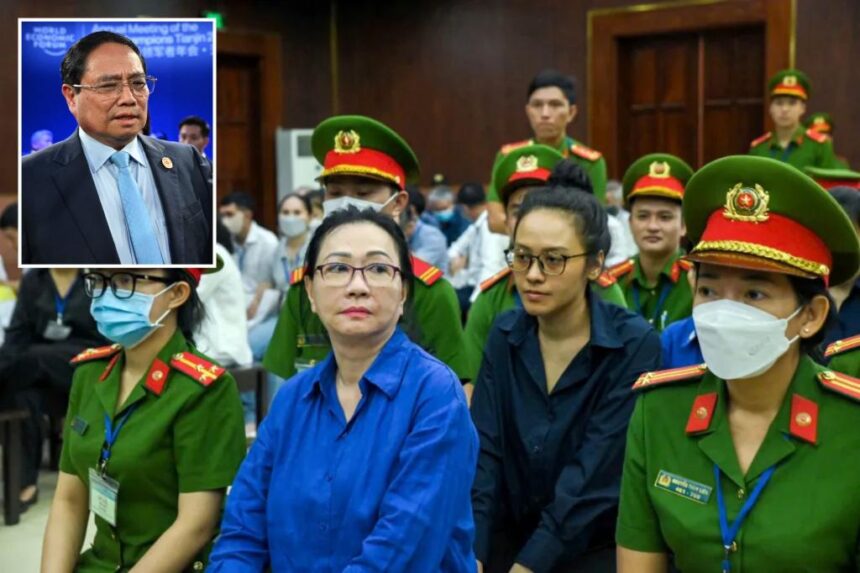Vietnam recently made significant legal reforms by lifting the death penalty for eight crimes, including those related to financial fraud, drug trafficking, and corruption. This move could potentially spare the life of Truong My Lan, a prominent real estate tycoon who was sentenced to death for her involvement in Vietnam’s largest financial fraud case.
The reforms were passed by Vietnamese lawmakers on Wednesday, marking a significant shift in the country’s justice system. Truong My Lan, the 67-year-old chair of the real estate company Van Thinh Phat, was facing execution for her role in a fraud scheme amounting to $12.5 billion. However, with the new rules in place, she may now be eligible for a reduced sentence, potentially avoiding the death penalty.
Lan’s lawyer, Phan Minh Hoang, confirmed that the legal changes mean that she could be exempt from the death penalty and instead face life imprisonment without parole. The reforms also stipulate that individuals already sentenced to death for the crimes no longer eligible for capital punishment will have their sentences commuted to life in prison.
The impact of these reforms extends beyond Lan’s case, potentially affecting other ongoing trials in the country. For example, the trial of Nguyen Van Hau, chairman of the real estate and infrastructure development company Phuc Son Group, who is accused of bribery to secure infrastructure projects, may also see changes in sentencing.
While the death penalty remains in place for crimes such as murder, sexual abuse of children, treason, and terrorism, the recent legal reforms in Vietnam reflect a shift towards a more nuanced approach to justice. These changes not only have the potential to spare lives but also signify a broader effort to reform the country’s legal system for the better.








